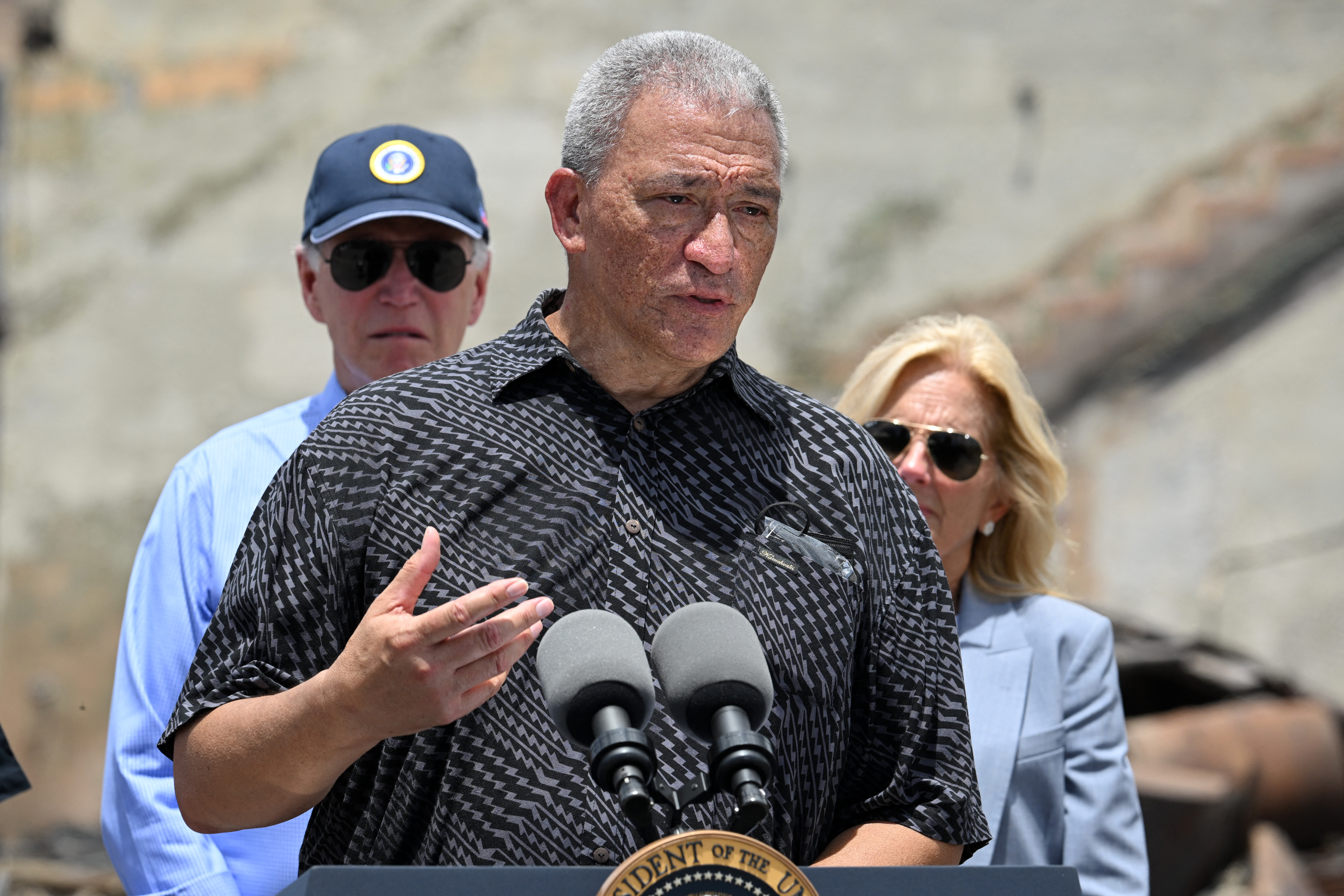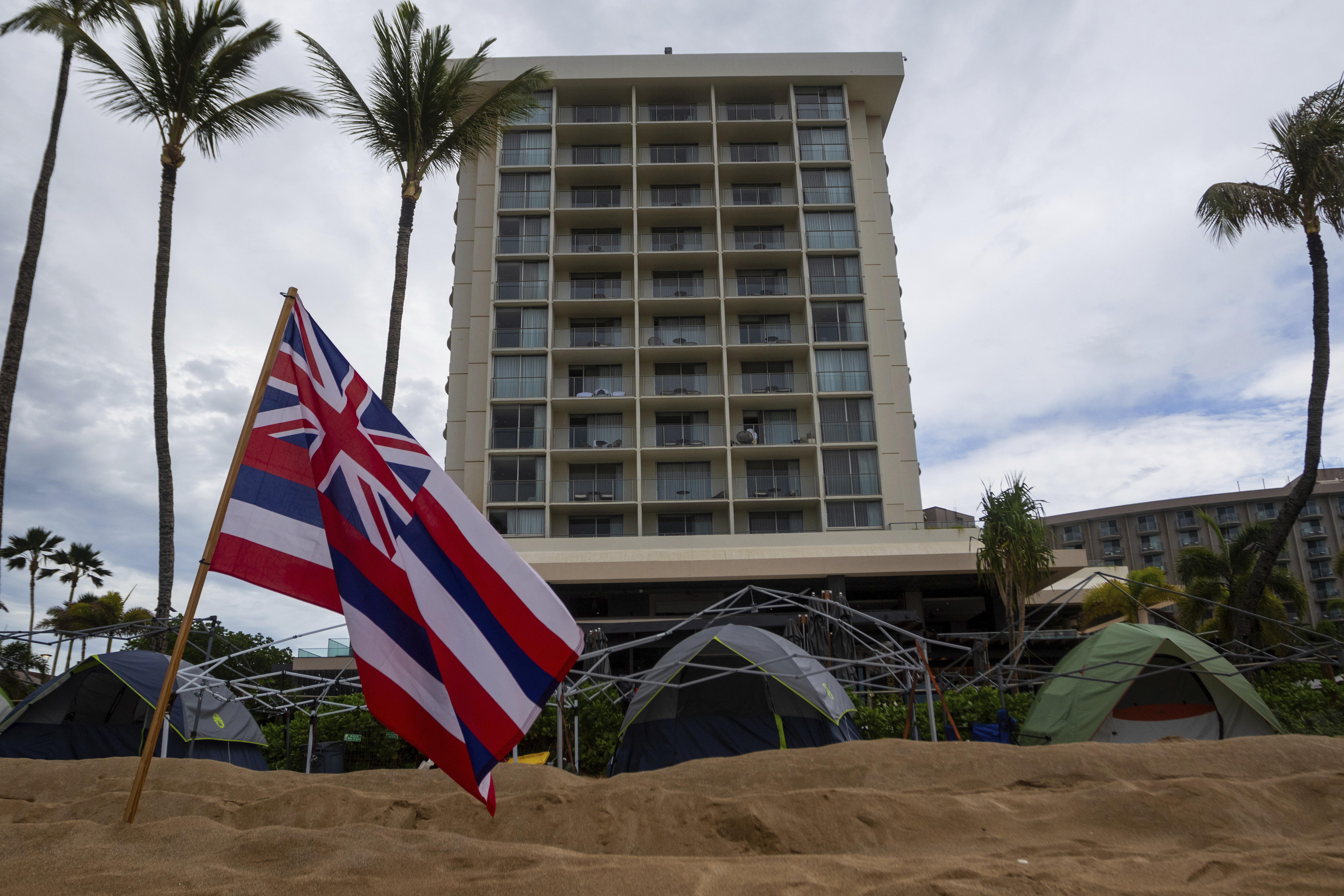
A single mother of two, Amy Chadwick spent years scrimping and saving to buy a house in the town of Lahaina on the Hawaiian island of Maui. But after a devastating fire leveled Lahaina in August and reduced Chadwick's home to white dust, the cheapest rental she could find for her family and dogs cost $10,000 a month.
Chadwick, a fine-dining server, moved to Florida where she could stretch her homeowners insurance dollars. She’s worried Maui’s exorbitant rental prices, driven in part by vacation rentals that hog a limited housing supply, will hollow out her tight-knit town.
Most people in Lahaina work for hotels, restaurants and tour companies and can’t afford $5,000 to $10,000 a month in rent, she said.
“You’re pushing out an entire community of service industry people. So no one’s going to be able to support the tourism that you’re putting ahead of your community,” Chadwick said by phone from her new home in Satellite Beach on Florida’s Space Coast. “Nothing good is going to come of it unless they take a serious stance, putting their foot down and really regulating these short-term rentals.”
Get top local stories in San Diego delivered to you every morning. >Sign up for NBC San Diego's News Headlines newsletter.
The Aug. 8 wildfire killed 101 people and destroyed housing for 6,200 families, amplifying Maui's already acute housing shortage and laying bare the enormous presence of vacation rentals in Lahaina. It reminded lawmakers that short-term rentals are an issue across Hawaii, prompting them to consider bills that would give counties the authority to phase them out.
Gov. Josh Green got so frustrated he blurted an expletive during a recent news conference.
“This fire uncovered a clear truth, which is we have too many short-term rentals owned by too many individuals on the mainland and it is b———t,” Green said. “And our people deserve housing, here.”
Vacation rentals are a popular alternative to hotels for those seeking kitchens, lower costs and opportunities to sample everyday island life. Supporters say they boost tourism, the state's biggest employer. Critics revile them for inflating housing costs, upending neighborhoods and contributing to the forces pushing locals and Native Hawaiians to leave Hawaii for less expensive states.
This migration has become a major concern in Lahaina. The Council for Native Hawaiian Advancement, a nonprofit, estimates at least 1,500 households — or a quarter of those who lost their homes — have left since the August wildfire.
The blaze burned single family homes and apartments in and around downtown, which is the core of Lahaina's residential housing. An analysis by the University of Hawaii Economic Research Organization found a relatively low 7.5% of units there were vacation rentals as of February 2023.
Lahaina neighborhoods spared by the fire have a much higher ratio of vacation rentals: About half the housing in Napili, about 7 miles north of the burn zone, is short-term rentals.
US & World
Napili is where Chadwick thought she found a place to buy when she first went house hunting in 2016. But a Canadian woman secured it with a cash offer and turned it into a vacation rental.
Also outside the burn zone are dozens of short-term rental condominium buildings erected decades ago on land zoned for apartments.
In 1992, Maui County explicitly allowed owners in these buildings to rent units for less than 180 days at a time even without short-term rental permits. Since November, activists have occupied the beach in front of Lahaina's biggest hotels to push the mayor or governor to use their emergency powers to revoke this exemption.
Money is a powerful incentive for owners to rent to travelers: a 2016 report prepared for the state found a Honolulu vacation rental generates 3.5 times the revenue of a long-term rental.
State Rep. Luke Evslin, the Housing Committee chair, said Maui and Kauai counties have suffered net losses of residential housing in recent years thanks to a paucity of new construction and the conversion of so many homes to short-term rentals.
“Every alarm bell we have should be ringing when we’re literally going backwards in our goal to provide more housing in Hawaii,” he said.
In his own Kauai district, Evslin sees people leaving, becoming homeless or working three jobs to stay afloat.
The Democrat was one of 47 House members who co-sponsored one version of legislation that would allow short-term rentals to be phased out. One objective is to give counties more power after a U.S. judge in 2022 ruled Honolulu violated state law when it attempted to prohibit rentals for less than 90 days. Evslin said that decision left Hawaii's counties with limited tools, such as property taxes, to control vacation rentals.
Lawmakers also considered trying to boost Hawaii's housing supply by forcing counties to allow more houses to be built on individual lots. But they watered down the measure after local officials said they were already exploring the idea.
Short-term rental owners said a phase-out would violate their property rights and take their property without compensation, potentially pushing them into foreclosure. Some predicted legal challenges.
Alicia Humiston, president of the Rentals by Owner Awareness Association, said some areas in West Maui were designed for travelers and therefore lack schools and other infrastructure families need.
“This area in West Maui that is sort of like this resort apartment zone — that’s all north of Lahaina — it was never built to be local living,” Humiston said.
One housing advocate argues that just because a community allowed vacation rentals decades ago doesn't mean it still needs to now.
"We are not living in the 1990s or in the 1970s,” said Sterling Higa, executive director of Housing Hawaii's Future. Counties “should have the authority to look at existing laws and reform them as necessary to provide for the public good.”
Courtney Lazo, a real estate agent who is part of Lahaina Strong, the group occupying Kaanapali Beach, said tourists can stay in her hometown now but many locals can't.
“How do you expect a community to recover and heal and move forward when the people who make Lahaina, Lahaina, aren’t even there anymore?” she said at a recent news conference as her voice quivered. “They’re moving away.”




